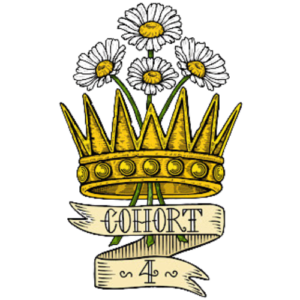During a period of intense change and disarray in my life back in 2004 I found an old translation of the Art of War written by Sun Tzu (Wing, 1988), and found comfort in the strategic approaches of battling with uncertainty and challenge in life. Although the content of the Art of War was once considered as a protected state secret and influential in Chinese political and military history, the content of Sun Tzu’s writing including popular quotations are now widely available (Dimovski et al, 2012). This text remains a seminal work not only connected to ancient military strategy, but also influential in various aspects of contemporary life, particularly in modern military and business leadership, on change management, negotiation and strategic management (Wu, Chou and Wu, 2004; Fernandez, 2004; Fang, 2006). There is an irony that the Art of War is an important book for me given I am a feminist researcher and practitioner, but, at an important juncture in my life, this ancient man’s words, a Chinese military general, strategist and philosopher, alive during the Eastern Zhou period, struck a chord with my situation of experiencing extensive personal and professional chaos and change.
I still find comfort and wisdom in the words of Sun Tzu when life is sending change my way, particularly when I know that I have little influence on said changes, nor know where it will lead me. Sun Tzu’s quotation about change in The Art of War is, ‘In short, the only constant is change’. While this specific phrasing may not be a direct translation from the original text, the essence of the statement aligns with Sun Tzu’s emphasis on adaptability and the dynamic nature of conflict and strategy. This principle has profound implications for understanding change in both historical and contemporary contexts.
The quote’s significance comes from an Eastern view of change, which suggests a pattern and predictability. Sun Tzu refers to the predictable and uncontrollable changes of the seasons, the days, and the moon. This concept is still important when we consider rapid advancements in technology and demands for agility and flexibility in our working lives and to an extent, within society itself.
The quote’s significance is that:
- Control: Our control over change is less than we would like to think.
- Predictability: Change is more predictable than we think it is.
Sun Tzu also said, ‘In the midst of chaos, there is also opportunity,’ a key quotation that I often repeat to myself when I feel the pangs of change anxiety looming. I once had this phrase laminated next to a desk I spent time at during a previous occupation. This quotation underscores the importance for me to recognise and seize opportunities during times of change and uncertainty (Dimovski et al., 2012). The philosophical underpinnings of Sun Tzu’s work, particularly the Taoist principles of needing balance and harmony offer some connection to personal and organisational growth and development. The idea that I must understand both myself and the presenting environment to navigate challenge effectively resonates with concepts of emotional intelligent and situational awareness.
A personal approach of removing myself from the danger of unnecessary conflict, whist engaging in reflective strategic anticipation, encourages me to cope with change as a natural part of life, trying hard to foster a mindset that is open to learning and progression (this is not always straightforward or easy in my head). This is also challenging when connected with the ghosts of life’s past waves of change, of repeated restructuring within our professional and/or personal lives, coupled with painful memories and experiences in past decades. However, looking back, I can see that the journey I have had to make through periods of chaos, change and reorganisation has always led to asking myself question of what have I learned through these change opportunities, to the opening of doors and new experiences that have created the woman I now am? All of this I do with the help of the sagacious philosophies of Sun Tzu. One thing I know from the years of my life is that chaos caused through periods of change does not last forever, if I try to navigate it with care, all will be well. As we continue to contend with rapid changes and uncertainties in modern life, the timeless wisdom of Sun Tzu serves as a guiding framework for me to continue to navigate the challenges of modern existence.
Beverley Gilbert
References
Dimovski, V., Marič, M.,Uhan, M., Đurica, N., and Ferjan, M. (2012) ‘Sun Tzu’s “Art of War” and Implications for Leadership: Theoretical Discussion’, Organizacija (45(4), p: 151-158.
Fang, T. (2006) Negotiation: the Chinese style, The Journal of Business & Industrial Marketing, 21(1), p:50 – 60.
Fernandez, J.A. (2004) ‘Management in times of change: lessons from The Art of War,’ Business Strategy Review, 15(1), p:51 – 58.
Wing, R.L. (1988) The Art of Strategy: A New Translation of Sun Tzu’s Classic The Art of War. New York: Broadway.
Wu, W.Y., Chou, C.H., and Wu, Y.J. (2004) ‘A study of strategy implementation as expressed through Sun Tzu’s principles of war’, Industrial Management and Data Systems, 104(5), p:386-408.


Recent Posts
- In the midst of chaos, there is also opportunity (Sun Tzu) 23rd October 2024
- Essential Toiletries and some beautiful Products for women at Cohort 4 19th December 2023
- One of my favourite Cohort 4 achievements 17th September 2023
- Cohort 4 at the Domestic Abuse Commissioner’s 1st Conference – A Festival of Practice 13th April 2023
Archives
- October 2024
- December 2023
- September 2023
- April 2023
- November 2022
- May 2022
- October 2021
- July 2021
- June 2021
- May 2021
- April 2021
- March 2021
- February 2021
- January 2021
- November 2020
- October 2020
- September 2020
- August 2020
- June 2020
- May 2020
- March 2020
- January 2020
- November 2019
- October 2019
- September 2019
- August 2019
- June 2019
- April 2019
- March 2019
- February 2019
- January 2019
- December 2018
- October 2018
- September 2018
- July 2018
- May 2018
- April 2018
- March 2018
- February 2018
- January 2018
- December 2017
- November 2017
- August 2017
- March 2017
- February 2017
- January 2017
- December 2016
- November 2016
- September 2016
- August 2016
- May 2016
- April 2016




Recent Comments